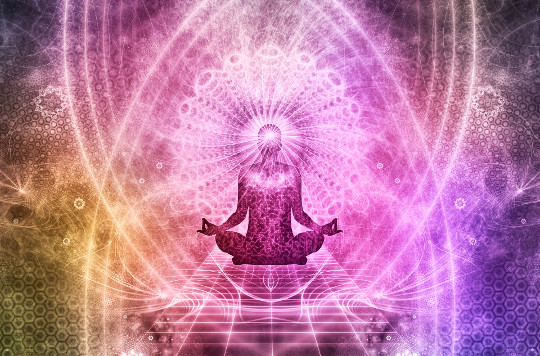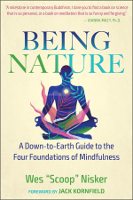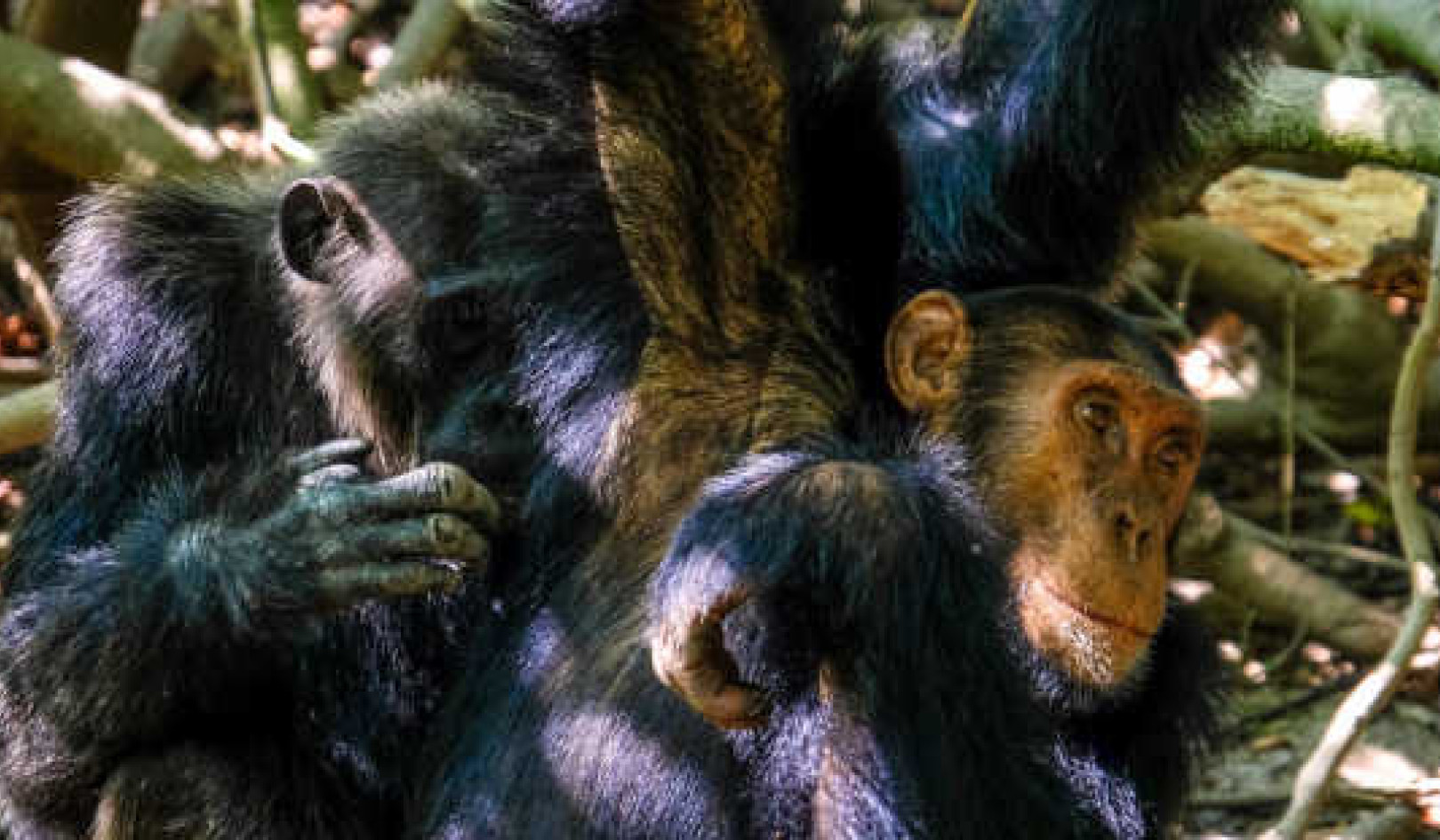
Image by Okan Caliskan
As one Korean Zen master put it, we can have “sudden enlightenment,” but for that enlightenment to have any impact requires “gradual cultivation.”
That’s why meditation is called a “practice.” Most of us will never get “there,” never arrive at a steady state of “happiness ever after” or “perfect wisdom.” Nature’s odds are against it. Humans seem to be novices at self-realization. And while mindfulness meditation may be an evolutionary sport, like evolution itself, the game is never finished. One reason is that if we are indeed evolving, then we will always need remedial training in self-awareness. Looking at history, it does appear as though we are always just barely catching up with where we are going.
That is why we need to practice. If we want to cultivate peace and freedom of mind we have to practice. These qualities do not seem to be our birthright. (Remember, we were born in “original sin”; we inherit animal instincts.)
If we want to remember our connection with nature or the cosmos, we have to somehow touch those truths regularly, preferably everyday. We have to put on our wider perspectives and wear them until they become our most familiar views of the world. We will simultaneously be teaching our ego its new place in the scheme of things.
Paraphrasing poet Gary Snyder, meditation is a process of entering into our deep identity over and over again, until it becomes the identity from which we live.
So how do you become more enlightened? The same way you get to Carnegie Hall—practice.
A Gift of Evolutionary Wisdom
It is also important to remember that evolutionary wisdom is not just about learning how to alter reactive habits but is in equal measure about learning to accept ourselves. Sitting in meditation shows us how deep our conditioning goes and prevents us from becoming too idealistic about “evolving.”
Rome wasn’t built in a day, and the modern human condition wasn’t built in even a thousand millennia. The habits of the heart and the “resonating neuronal assemblies” are deeply encoded; the stimuli’s responses run deep.
One of the greatest gifts of evolutionary wisdom is to reveal the primal quality of our neuroses; to show us its inherited, collective, archetypal nature. Self-realization is not some mystical endgame. Knowing who we are also means that we don’t kid ourselves about our possibilities. Evolutionary wisdom means that we get real.
Deepening Self-Awareness
If you want to deepen your self-awareness, it is important to establish a regular meditation practice. When we first wake up in the morning is the best time to get in touch with our deep identity.
Otherwise, we get immediately caught in the tangled dramas of selfhood and will forget to feel our simple aliveness. We will get caught up in all the things we have to accomplish and will live that day without any connection to or appreciation for the air or the planet revolving beneath us, turning us toward the light.
At any time during the day we can place attention on our breath and reflect upon it as the basic pulse of our life, an identity as vital as any goal or concept in our head. At any time during the day we can step through one of our breaths into a larger perspective and take a brief rest from the demands of our personality and its dramas.
If done regularly, Buddhist mindfulness meditation can make a profound difference in how we live and how we feel about our lives. If you are interested in pursuing this evolutionary sport, I suggest that you find a teacher or meditation center where you can study and deepen your understanding.
The Wings of Wisdom and Compassion
It has been said that the teachings of the Buddha are like a bird with two wings—one wing is wisdom and the other is compassion. The wings both grow out of mindfulness meditation practice, and they support each other in the flight toward self-realization. With every stroke of insight into our true nature comes a corresponding feeling of compassion for all beings with whom we share the conditions of our existence.
In Buddhist teaching, the development of the mind-states of compassion (karuna) and loving-kindness (metta) are not moral commandments but rather an organic outgrowth of wisdom.
As we realize our own evolutionary nature we automatically begin to feel increasing kinship with all forms of life. All other animals become our cousins, grown from the same cells; all plant life is feeding us our oxygen nutrient and can be seen as our green umbilical cord to Mother Earth.
Self-Realization in the Plural: Who Are We?
As we experience our basic human condition through the Four Foundations of Mindfulness, we also come to realize how much we have in common with all other humans. We become aware that we share the same shape and moment in evolutionary history; we carry the same legacy of scars and triumphs, the same dreams and limitations, the same experiment in living. We have come alive together in what paleontologists call the Holocene. We are epoch mates, all sharing the same ’cene!
We realize that underneath the thin layers of personality we are joined together at the amygdala and the neocortex, at the thumb, and at the upright, forward-facing hip. We are all part of the same project, whether it be simple survival or some unknown purpose of a mysterious guiding intelligence. Meditation teaches us that we are human, and as some mystics say, “When we remember we are human we are praying.”
Since we have so much in common, perhaps we could simply consider our journey toward self-realization in the plural. Instead of asking “Who am I?” the question could become “Who are we?” Our inquiry then becomes a community koan and we all immediately become great saints—called bodhisattvas in Buddhism—helping each other through this moment in the evolution of life on earth.
In this evolutionary sport, we are all on the same team. All of us are Earthlings.
Copyright ©2022. All Rights Reserved.
Reprinted with permission.
Article Source:
Being Nature: A Down-to-Earth Guide to the Four Foundations of Mindfulness
by Wes "Scoop" Nisker. Using the traditional Buddhist meditation series of the Four Foundations of Mindfulness as a framework, Wes Nisker offers a witty narrative along with practical meditations and exercises to train the mind to overcome painful conditioning and gain greater self-awareness, increased wisdom, and happiness. He shows how recent discoveries in physics, evolutionary biology, and psychology express in scientific terms the same insights the Buddha discovered more than 2,500 years ago, such as the impermanence of the body, where thoughts come from, and how the body communicates within itself.
Using the traditional Buddhist meditation series of the Four Foundations of Mindfulness as a framework, Wes Nisker offers a witty narrative along with practical meditations and exercises to train the mind to overcome painful conditioning and gain greater self-awareness, increased wisdom, and happiness. He shows how recent discoveries in physics, evolutionary biology, and psychology express in scientific terms the same insights the Buddha discovered more than 2,500 years ago, such as the impermanence of the body, where thoughts come from, and how the body communicates within itself.
Presenting a variety of new ways to harness the power of mindfulness to transform our understanding of both ourselves and the world, Nisker teaches us how to put our understanding of evolution in the service of spiritual awakening.
Click here for more info and/or to order this paperback book. Also available as a Kindle edition.
About the Author
 Wes “Scoop” Nisker is an award-winning broadcast journalist and commentator. He has been a meditation teacher since 1990 and leads mindfulness retreats internationally. The author of many books, including The Essential Crazy Wisdom, he is founding coeditor of The Inquiring Mind, an international Buddhist journal, and he is also a standup “dharma comic.”
Wes “Scoop” Nisker is an award-winning broadcast journalist and commentator. He has been a meditation teacher since 1990 and leads mindfulness retreats internationally. The author of many books, including The Essential Crazy Wisdom, he is founding coeditor of The Inquiring Mind, an international Buddhist journal, and he is also a standup “dharma comic.”
Visit his website at WesNisker.com/
More Books by the author.


























